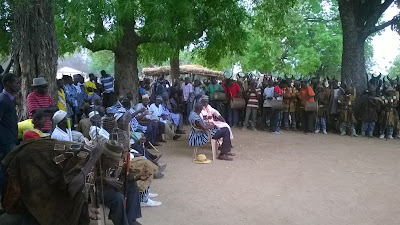Several cultural practices continue to stand in the way of public health in the Buluk community and need urgent attention, especially in times such as those brought about by COVID-19. Some of these practices include but are not limited to the following;
1. Handling of dead bodies: People die from different kinds of diseases and ailments. Some of these diseases are communicable. Most of the time, the relatives of the dead are unaware of the cause of death and, out of love for their deceased relative and also to fulfill customary rites, handle the dead body without protecting themselves from contamination; no face masks, no protective clothing, no gumboots, no utility gloves.
2. Communal eating: Communal activities are commonplace in Northern Ghana and go along with communal eating. People socialize without knowing the health statuses of their compatriots. As many as 25 people can eat from the same bowl and over 50 people can drink from the same cup! Anyone found shunning such acts is scolded and becomes a candidate of 'unnecessary' suspicion by compatriots.
3. Self-cleansing acts: Many people have been forced to prove their innocence in society by drinking concoctions or eating highly contaminated foods. Polluted water from streams is sometimes consumed. Anybody who refuses to drink the water is automatically suspected as the wrongdoer or an enemy of the people and the consequences of such suspicion are dire.
Some people have died from food-borne and water-borne diseases which other people ignorantly attributed to curses and witchcraft!
People have been educated on the dangers involved in all these practices by health workers in the past but they are still reluctant to let go of these health and life-threatening cultural practices. As the adage goes, "old habits die hard."
What other practices do you also think can impact negatively on public health in the Buluk community?






No comments:
Post a Comment